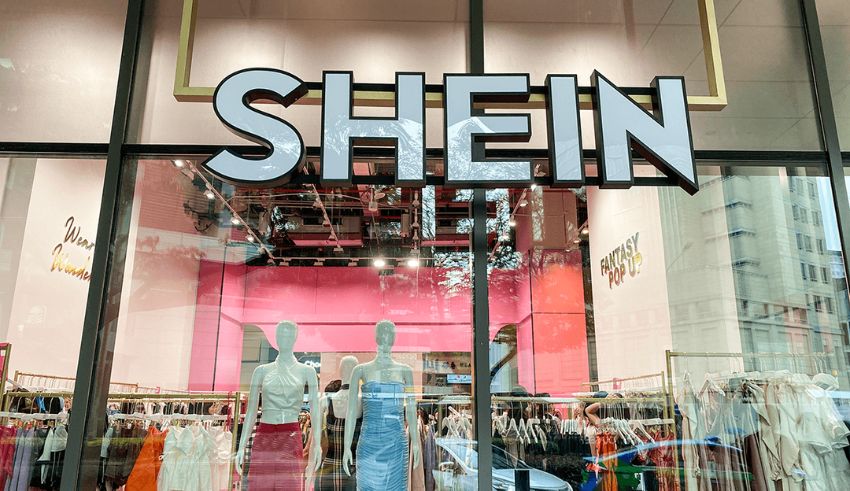
Shein, the Chinese-founded fast-fashion powerhouse known for its moderately priced, modern clothing, has confirmed the layoff of more than two dozen employees at its Singapore headquarters. Declared on Wednesday, this measure is part of a bigger reorganization initiative aimed to match the company’s evolving global ambitions by aligning its worldwide IT research and development (R&D) center. The news lands at a turning point as Shein negotiates a challenging terrain—operatively as well as in terms of public awareness.
Layoffs Impacting Singapore’s R&D Team for IT
More than 20 staff members in Shein’s IT R&D center in Singapore were informed of the layoffs, part of an attempt to streamline the company’s global activities. Though this development may point to internal problems, Shein underlined in a statement to The South China Morning Post that the restructure is part of a bigger plan aiming at improving “global expansion, localisation efforts, and operational efficiency”. Shein underscored its ongoing commitment to growing its Singaporean operations and said that despite these layoffs it is now hiring for a number of roles.
Shein’s ambitions to raise its profile on the global scene raise questions about the long-term strategy of this reorganization choice. The company is seeking to restrict its aggressive expansion goals in many areas, particularly in Southeast Asia and Europe, thus improving its operations and hence the drop in headcount at the Singapore headquarters comes as inevitable. Shein aspires to create a truly global fashion company, hence she has considered these regions to be highly vital battlefields.
IPO Plans and Regulatory Scrutiny
Shein’s attempts to apply for an initial public offering (IPO) in London, a move that has drawn a lot of interest and research, also line up with the layoffs. Shein was originally set to go public in New York but changed her mind in reaction to political opposition from U.S. lawmakers concerned about the company’s relationships to China and economic activities. Looking for a listing in London was seen as another way to get the necessary funds to meet its global ambitions. But Shein’s aspirations for her IPO in the UK have also run up difficulties, including British government scrutiny.
The unclear character of the IPO throws doubt on Shein’s intended future growth strategy. Regulatory authorities both in the United States and the United Kingdom have questioned Shein’s labor standards, supply chain transparency, and environmental effect. These issues have sparked debates about whether Shein can project herself as a conscientious global business citizen. For the fast-fashion retailer, the completion of an IPO successfully might be a turning moment in terms of verifying its financial health and expanding its operations to hitherto unheard-of proportions. Still, the regulatory challenges can cause these projects to be postponed or even turned aside.
Shein’s Globally Growing Difficulties
Originally founded by Chinese billionaire Xu Yangtian, commonly known as Sky Xu, Shein developed a fresh business plan linking consumers directly back to Chinese manufacturers. This approach allowed the company to quickly become well-known in Western countries including the United States and Europe by offering cheaply priced, trend-driven clothes to a broad consumer base. Since moving its headquarters to Singapore, Shein has, however, come under more and more criticism over its business practices, particularly with relation to labor standards and environmental sustainability.
Shein’s bigger effort to become a major player in the global fashion business depends on the reorganization of its international IT R&D center. To better satisfy local consumer interests and legal restrictions, the company has focused on localizing its operations in critical areas, therefore separating itself from its Chinese roots. To be more prominent in other areas, Shein has been supporting tailored marketing initiatives, local influencer alliances, pop-up stores in major cities.
Shein has fought to overcome the challenges connected to its explosive rise even with its rapid expansion. Labor policies of the company have come under criticism since allegations of poor working conditions in its supplier chain highlight them. Environmental problems have also been brought up since critics of the fast-fashion trend note how closely it relates to waste and overconsumption. Shein promised to increase supply chain openness and funded environmental projects in response to these grievances. Regulators and several business experts, however, have expressed uncertainty about these programs.
Challenges Shein’s IPO must overcome as well as future growth
Shein’s decision to let employees leave Singapore comes at a time when the business is under tremendous pressure to prove it can operate ethically and sustainably all around. The layoffs and the uncertainty around the IPO speak to Shein’s attempt to scale its business while answering concerns about its corporate practices suffering increasing difficulties.
Shein’s challenges securing a successful IPO also mirror more widespread problems fast-fashion companies all around deal with. Growing criticism has centered on the fast-fashion industry, which depends on quickly manufacturing cheap, trend-driven garments, for its labor policies and environmental impact. Shein is one of the most active players in this industry; she has found herself in the middle of these conversations particularly since she wants to go public and collect money.
Successful completion of an IPO will enable Shein to confirm its leadership in the global fashion business and maintain her means of growth. Still, the ongoing regulatory scrutiny in the United States and the United Kingdom could cause delays or maybe compromise its preparations. Shein’s capacity to negotiate these challenges will greatly determine its long-term success.
As it develops with its reorganization and expansion initiatives, Shein will have to balance its growth objectives with the need to calm concerns about its corporate processes. The Singaporean layoffs remind us that even well-run companies have to continuously change to fit changing market conditions and legal environments. It is currently unknown whether Shein can surmount these challenges and lead the global fashion business.
Right now, the company’s main goals remain on building its presence in key locations and working on an IPO in London. Though the route forward is unknown, Shein’s continuous success depends critically on her ability to adapt to shifting consumer expectations and regulatory limits.
Shein’s recent layoffs represent essentially a turning point in the company’s history. As it arranges its international IT R&D operations and negotiates the complexities of an IPO, which will help to define its future in the competitive world of global fashion, the fast-fashion behemoth faces several challenges.





















